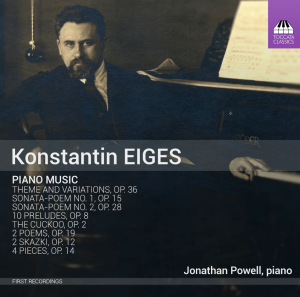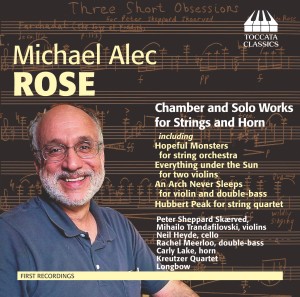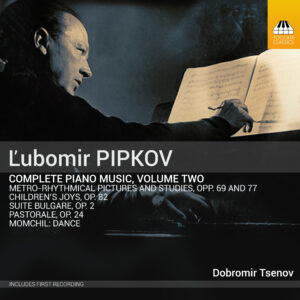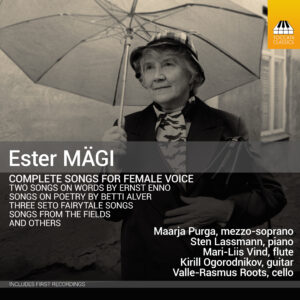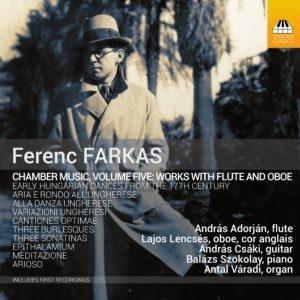Search Results for "车牌粤n11111车主是谁-【✔️推荐BB76·CC✔️】-微信支付30拆红包-车牌粤n11111车主是谁s1rb0-【✔️推荐BB76·CC✔️】-微信支付30拆红包kve2-车牌粤n11111车主是谁ckr4a-微信支付30拆红包jbdt"
Showing results for ca112 cioè csáki cages1 cioè csáki cuckoo csáki ca112 c1872 cages1 c1872 cioe csaki cioe csaki csaki
Konstantin Eiges: Piano Music
Konstantin Romanovich Eiges (1875–1950), a member of a gifted Jewish family from eastern Ukraine, studied both in medicine and music in Moscow, but soon became known as an outstanding composer and pianist. His music bears the impress of Taneyev, his teacher, and of Skryabin and has points in common with his friends Medtner and Rachmaninov, but this first recording of his piano music reveals a figure who deserves to be remembered in his own right.
Jonathan Powell, piano
Michael Alec Rose: Chamber and Solo Works for Strings and Horn
In 2004 the American composer Michael Alec Rose (born in 1959 in Philadelphia) met the English violinist Peter Sheppard Skærved. That meeting sparked off a productive friendship: Rose has since written a number of works for Sheppard Skærved and his musician colleagues, pieces marked by striking emotional directness, balancing warm lyricism and mordant wit.
Michael Alec Rose, bell
Peter Sheppard Skærved, violin, director
Mihailo Trandafilovski, violin
Morgan Goff, viola
Neil Heyde, cello
Kreutzer Quartet, string quartet
Rachel Meerloo, double-bass
Carly Lake, horn
Longbow, ensemble
Ľubomir Pipkov: Complete Piano Music, Volume Two
Ľubomir Pipkov (1904–74) was one of the leading members of the so-called ‘second generation’ of Bulgarian composers. In later life he became fascinated with the ancient heritage of Bulgarian folk-music, producing a series of what he called ‘metro-rhythmical studies’ – piano miniatures that combine melodic immediacy and rhythmic complexity, with a character that might be loosely characterised as sounding like ‘Prokofiev meets Bartók in the Balkans’. Indeed, Pipkov saw in the irregular rhythms of Bulgarian folk-dance a parallel with the rhythmic experimentation in contemporary composers like Debussy, Ravel and Stravinsky.
Dobromir Tsenov, piano
Ester Mägi: Complete Songs for Female Voice
For the latter part of her long life, Ester Mägi (1922–2021) was known as ‘the First Lady of Estonian music’, her modest, charming disposition endearing her to all who met her. But her music reveals the true strength of her personality, and this first complete recording of her songs for female voice – over half a century of compositional activity – covers a striking emotional range, from the ambivalent feelings of falling in love to dramatic ritual invocations of startling force and power. Many of the earlier songs are openly romantic, but Mägi soon began to tap into the hypnotic energy of Estonian runic folksong, with its echoes of village life and its incantations intended to placate a hostile environment.
Maarja Purga, mezzo-soprano
Valle-Rasmus Roots, cello
Mari-Liis Vind, flute
Kirill Ogorodnikov, guitar
Sten Lassmann, piano
Ferenc Farkas: Chamber Music, Volume Five – Works for Flute and Oboe
This twelfth release in the Toccata Classics exploration of the music of Ferenc Farkas (1905–2000) once again puts his chamber music with flute in the spotlight – here with an oboe chaser. As with previous albums in this series, the music highlights the characteristics that make Farkas’ music so appealing: catchy tunes, transparent textures, buoyant rhythms, a fondness for Baroque forms and a taste for the folk-music of his native Hungary that marks him out as a true successor to Bartók and Kodály. The works in this recording are almost all reworkings – by Farkas or the two soloists here – of music first written for different forces and now taking on a new lease of life.
András Adorján, flute (Tracks 1–15)
Lajos Lencsés, oboe (Tracks 15, 19–22), oboe d’amore (Tracks 23–26), cor anglais (Track 27)
András Csáki, guitar (Track 12)
Balázs Szokolay, piano (Tracks 1–11, 13–21)
Antal Váradi, organ (Tracks 22–27)
Too Many Symphonies? – Part One: Rob Keeley
Sometime in the 1950s, when John Barbirolli famously said ‘there are too many symphonies this year, or any year’, he might have been weary after…
Ottorino Respighi: L’Opera Per Pianoforte Solo
di Potito Pedarra Scrive Lorenzo Arruga presentando alcune “liriche più famose [di Respighi]: una volta le ho persino accompagnate in un piccolo concerto, accettando a…
Stay In the Know
JOIN THE TOCCATA NEWSLETTER
"*" indicates required fields
By visiting our site, you agree to our privacy policy regarding cookies, tracking statistics, etc.
